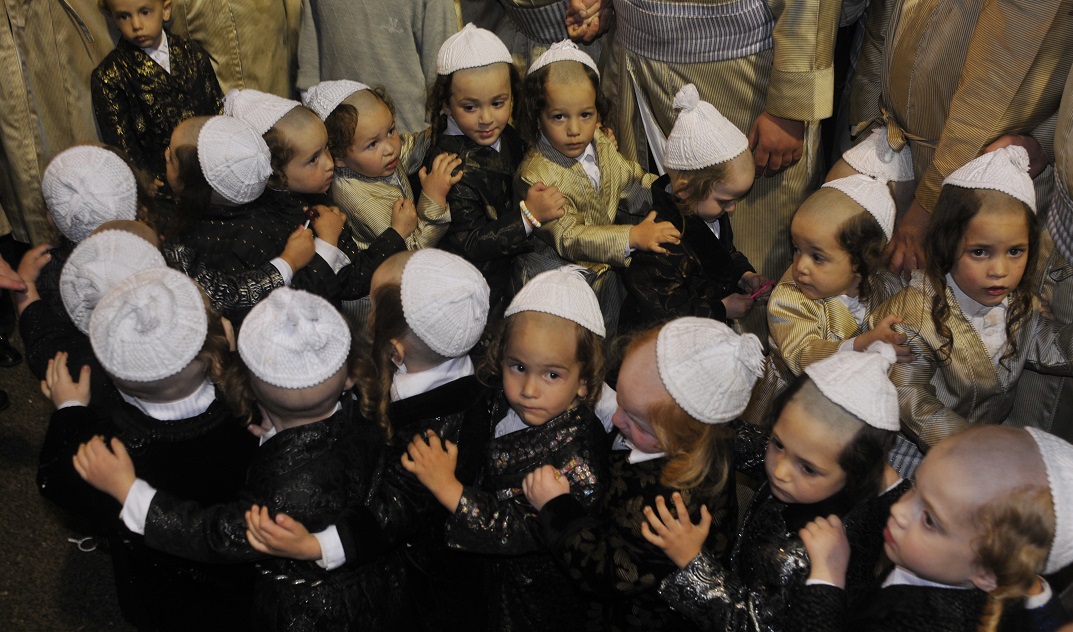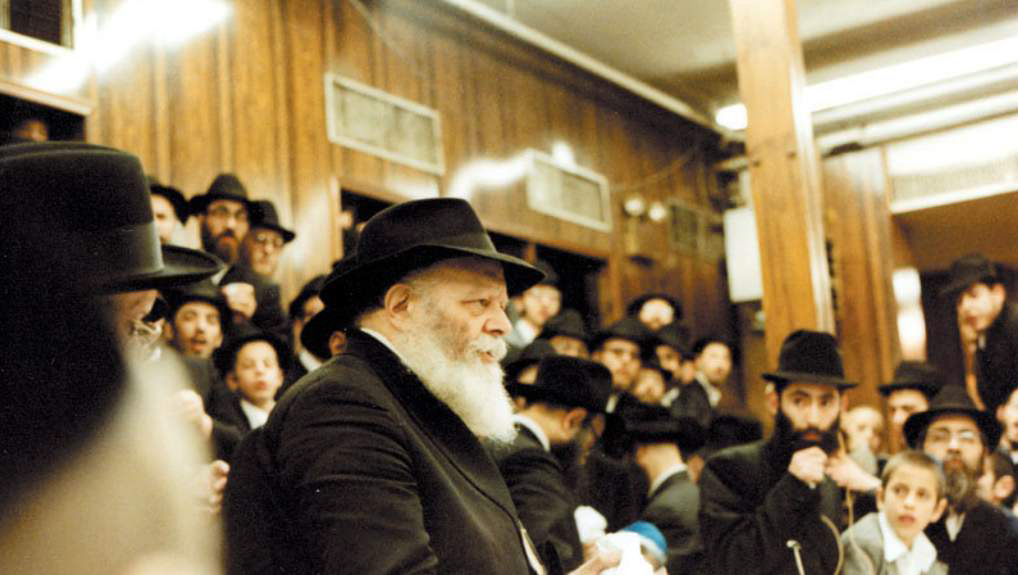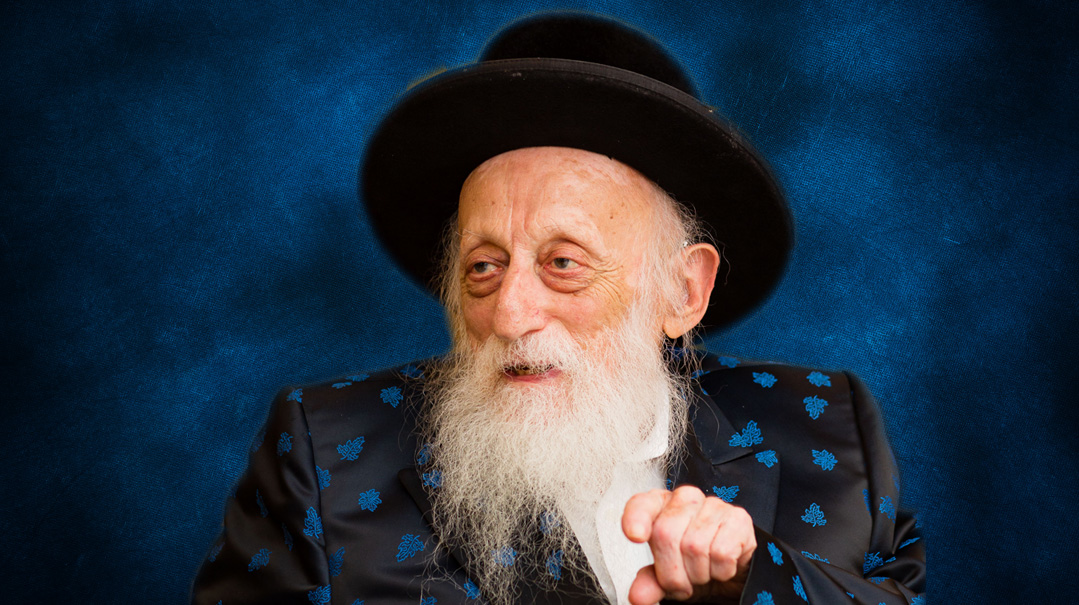His Name Shall be Shimon

These couples traveled with heavy hearts to a distant mountain in the north of Eretz Yisrael, and trace their miracle back to that fateful journey

Five women share their miracle stories.
Half the Yeshuah
S
himon Manoach turned five last Erev Pesach. His parents waited for over nine years for children — long years full of tefillah and yearning, with no way of knowing when they would end.
“My husband was always very connected to Rabi Shimon,” Esther Manoach relates. “We always went to Meiron for Shabbos Chanukah and at other opportunities throughout the year. During our long years of waiting, we davened endlessly, tried many procedures and also various segulos. At a certain point, we both traveled to Meiron and made our promise that if we’d have a son we’d name him Shimon.
“A number of years passed since our promise. You don’t set time limits for Hashem. Yet, I certainly feel that our yeshuah was connected to our promise. The promise itself is half the yeshuah! It gives chizuk. Once I made my vow, I was sure that we would eventually have a child.
“My husband knows Rav Shechter and once traveled with him to Meiron for Shabbos. In Meiron, the rav gave my husband a brachah and said that we’d have a yeshuah very soon. That type of promise certainly falls under the category of: ‘A tzaddik decrees and Hashem fulfills.’
“In the end, we found out that I was expecting right after my husband returned from a different trip to Meiron. He always went there regularly on the 5th of Av for the Arizal’s yahrtzeit, staying an extra two days. I got the good news when he returned.
“Throughout the pregnancy, I felt so connected to Rabi Shimon bar Yochai. We sing the song ‘Bar Yochai’ every Friday night. In the months before I gave birth, I had strong emotions every time we sang it.
“Right before I gave birth, a friend called from the States asking my husband to daven for them in Meiron. My husband made a special trip that night to Meiron to daven for this friend. In the morning when he returned, we went to the hospital. I had a feeling the whole time that Rabi Shimon was accompanying us.”
The upsherin was two years ago on Lag B’omer in Meiron. Little Shimon already feels very connected to the tzaddik whose name he bears. “It’s a great name,” concludes Esther. “You can count on Rabi Shimon.”
Eliyahu Hanavi at Meiron
“The doctors said that we didn’t stand a chance,” relates Sari, as she fingers Shimmy’s long peiyos. “Baruch Hashem, we have two daughters. But the younger of the two was already ten, and we yearned for another child. Years of treatments left us full of disappointment — and with no hope.
“Finally, we were ready to give up. One doctor was offering a complicated surgery, but even he could not guarantee success. We went to ask our rebbe, the Gerrer Rebbe, what to do and he advised us against such a risky, unproven procedure. We knew our only option was to daven for an outright neis.”
Sari’s mother suggested that they travel to Meiron and make the well-known promise to Rabi Shimon. Sari was hesitant. “I’ll probably never have a son,” she told her mother in a disheartened voice, “but if I am ever zocheh to this neis, I’m going to want to name him after my grandfathers or after our rebbe that was niftar! I can’t just promise to give away the name of the only boy I may ever have!”
A number of years passed. Then, about nine years ago, Sari’s father-in-law suffered a heart attack on Lag B’omer evening and was rushed to the hospital. Her husband accompanied his father and Sari was home alone with her daughters. Although the family always traveled to Meiron for Lag B’omer, Sari couldn’t fathom planning such a long trip by herself.
At ten o’clock the next morning, she suddenly galvanized herself into action. “Today’s Lag B’omer, and I’m just going to sit at home?” she chided herself. On the spur of the moment, she grabbed her purse and a package of tissues and within 15 minutes was on a bus headed north.
“I was terribly restless on the three-hour bus ride,” Sari muses. “I’m not used to going on my own. But it was for the best. I had time to be with myself and to daven. When we arrived in Meiron, I started the long solitary climb up the mountain and suddenly I saw Eliyahu Hanavi!”
Sari pauses, expecting the look of incredulity.
“Okay, fine. But from my point of view, he was Eliyahu Hanavi. He was ancient, looked a hundred years old, and dressed in white from head to toe. Despite his age, he was dancing energetically like a little child.
“People stood and watched him, open-mouthed. He caught everyone’s attention. How can such an old man dance with such grace without getting tired? I was rooted there for about half an hour, watching and crying; I couldn’t tear myself away from the sight!”
Sari eventually was carried along with the flow of people toward the kever. There, squashed between the multitudes of women, the words suddenly escaped her lips: “B’ezras Hashem, if we’ll be zocheh to a son by the next Lag B’Omer, we’ll name him Shimon.”
“I didn’t plan it.” In retrospect, Sari still seems confused as to how she made such a spontaneous promise. “I hadn’t discussed it with my husband. I don’t know how it happened to me. Suddenly, the words came out of my mouth. I went home and told my husband — I was sure by the next Lag B’omer I’d be fulfilling my promise. The rest is history. No doctors, no medications, no procedures.”
Their son was born on the 13th of Iyar and his bris was two days after Lag B’omer.
When Shimmy was less than three months old, his parents took him to Meiron to daven at Rabi Shimon’s kever with much thanksgiving and praise. Since then they travel there many times.
“When I see my Shimmy dance and sing ‘Va’amartem koh lechai’ in Meiron, I’m overcome with emotion! And you want to know what else?” here Sari pauses reflectively, “Shimmy dances gracefully and with tremendous enthusiasm — just like that ‘Eliyahu Hanavi’!”
Valuable Hishtadlus
Yitzchak and Yocheved were the “average” American couple living in Eretz Yisrael. Yitzchak was learning in the Mir and Yocheved was working, taking courses as a graphic artist. Life in Eretz Yisrael was fulfilling, and both were happy with their decision to build their home in the heart of the world.
However, as the years went by, life became painful when they were not blessed with children. Five years after their marriage, Yocheved suggested that they go to Meiron to daven at the kever of Rabi Shimon bar Yochai. “I didn’t feel it was anything out of the ordinary,” she says. “We’re a typical litvish kollel couple. I just had a strong feeling that this was something we should do.”
As they boarded the bus though, Yitzchak felt uneasy. The trip to Meiron on Lag B’omer was a huge all-day affair with long hours of traveling and then dealing with the crowds at the actual site. Was this something to miss a whole day of learning for? Perhaps they were just chasing a dream? They alighted from the bus, but not before Yocheved asked her husband to please consult with the rosh yeshivah to decide if this was a worthwhile undertaking on their part. Later, Rav Nosson Tzvi Finkel ztz”l was unequivocal that in their case, this hishtadlus was valuable for both Yitzchak and Yocheved together.
Things came to a difficult climax that winter when Yocheved gave birth to a stillborn in the ninth month. Devastated by this painful trauma, a few months later, both Yitzchak and Yocheved traveled together to Meiron on Lag B’omer to pour out their hearts at the kever of Rabi Shimon bar Yochai. There, they both promised that should Hashem bless them with a healthy boy, they would name him after Rabi Shimon.
Despite the medical difficulties she had incurred several months earlier with her stillborn, Yocheved soon found out she was expecting. Five days before the next Lag B’omer, Yocheved gave birth to twin boys. One is named after Rabbi Shimon and the other after their great-grandfather. Today the boys are past bar mitzvah and are joined by their younger siblings. The promise of Rabi Shimon knows no nationality borders!
Factoring in Family
On Lag B’omer, exactly 19 years ago, young Devori Bermatz walked her husband to the bus stop to catch a bus from Bnei Brak to Meiron. She was expecting and not feeling well so she opted out of joining him among the thousands who were making the trip.
As Devori waited for him to board one of the long line of buses filling up, she requested that he represent her at the kever as well. Waving goodbye, she turned to go home. Minutes later, as she walked down some steps toward home, she tripped.
It was a serious fall and she had difficulty getting up. Seeing she was dizzy and shaken, passersby called an ambulance and she was taken to the hospital. The doctors tended to her quickly, but her condition was serious. It appeared that her unborn baby had suffered damage.
Devori was terrified and tried to contact her husband. In those days, cell phones were rare and it took a while to reach her husband who was still traveling. He got off the bus in the middle of the route and made his way back to Bnei Brak. By the time he was reunited with Devori, the situation was tense.
Sitting together in the emergency room, they felt they had to take some action, find some zechus to protect the life of this baby. They set aside money for tzedakah and promised that if their baby would be born healthy and fine, they’d name him after Rabi Shimon bar Yochai.
“We felt like it was an advantageous moment on such an auspicious day, especially as my husband had tried to travel to Meiron. I was able to stand so we both stood up and made our promise clearly. We repeated it three times, with great emotion.”
A number of months passed, and suddenly their illustrious grandfather passed away. The whole family, unaware of Devori’s promise, eagerly awaited the birth of the first baby who would bear their grandfather’s name. Not long afterward, Devori gave birth to a cute and healthy baby boy, and the family’s expectations turned to openly excited talk.
The new parents were stuck between a rock and a hard place. On the one hand, they had promised and were certain that it was in the zechus of Rabi Shimon that their frightening episode had a happy ending. On the other hand, the whole extended family was waiting for this child to bear their grandfather’s name. They were very distressed and felt that the decision was too great for them, so they turned to one of the gedolei hador.
The rav listened to their deliberations and asked about the nature of the promise. They described how they had stood and made the promise seriously and then repeated it three times. They related how moved they were that Devori’s accident had happened specifically on Lag B’omer. The rav heard and paskened: “It’s exactly like a neder. It’s a problem to break a promise. Call him Shimon,” and he showered the newborn with warm brachos.
And the family? Perhaps they understood. But even if they didn’t understand, they since have had the wonderful zechus of a child named after their grandfather when Devori had her next baby boy….
Zeidy Dancing in Meiron
“I don’t have much of a story,” says Hindy Rubinstein. “Tefillos, tefillos, and more tefillos — that’s our story.”
These short words encompass within them 11 unbearably long years of waiting for a child. Years of disappointment, pain, and gallons of tears. “Hashem definitely counts and saves the tears,” Hindy said confidently. “And the segulos must have helped as well. On Lag B’omer we promised that if we would be zocheh to a son we would call him Shimon, and we were doubly zocheh.”
Their twins were born a little more than two years after their promise in Meiron. A number of months before they were born, Hindy saw her grandfather in a dream, dancing in Meiron. “My grandfather passed away six years ago. He always encouraged us and said that he was certain that we would make simchos. He wasn’t zocheh to see Shimmy and Sarala, but when I saw him in my dream, I knew that he was happy for us, and I felt like he was reminding me of our promise.
“Now what’s left is for our children to live up to their illustrious namesakes. For that, we continue to daven.”
From Meiron to Har Hazeisim
While the kever of Rabi Shimon is the one most commonly used for a segulah for a son, there’s another kever people flock to in the hope of a child.
Rav Nosson Notta Freund ztz”l was a beloved Yerushalmi Jew who passed away a year and a half ago. Three years after his marriage, he had a daughter. A number of years later, he was zocheh to another daughter. Though appreciative of his blessings, he still longed for a son. He traveled to the kever of the Ohr Hachayim Hakadosh on Har Hazeisim, and promised that if he would merit a son, he would name him Chaim, after the Ohr Hachayim.
Rav Notta Freund had a friend named Rav Pinchas Liberman, who later wrote the peirush on Chovos Halevovos called Lev Tov. Rav Pinchas also spent years waiting for children. When he was married four years he went to Meiron, made the well-known promise, and a year and a month later was blessed with a son, who was, of course, named Shimon.
Another four years passed, and Rav Pinchas again longed for Hashem’s blessing. He already had a Shimon, so that segulah was no longer relevant, but he heard that his good friend, Rav Notta, had promised to name his son after the Ohr Hachayim Hakadosh, and he decided to do likewise.
Rav Pinchas went to the kever and made his own promise. Ten months later, he had twins — a boy and a girl. The boy was obviously named Chaim and his sister was named Chaya — also after the tzaddik, but they added the name Esther.
One month later, Rav Notta Freund also had a baby boy whom he named Chaim.
Years passed, and one day, a chuppah was set up under the skies of Yerushalayim: Chaim Freund took Chaya Liberman as a wife. (As heard from Harav Tuvia Freund, son of this esteemed couple.)
(Originally featured in Family First Issue 439)
Faigy Peritzman contributed to this feature.
Oops! We could not locate your form.












